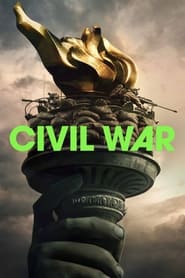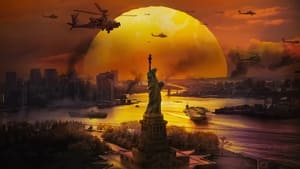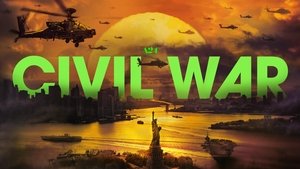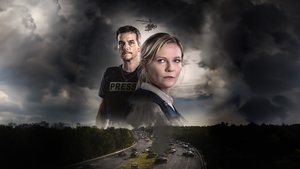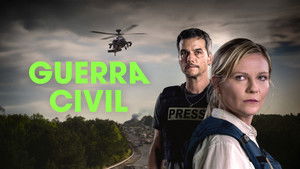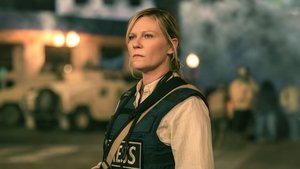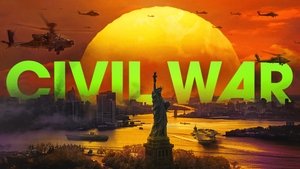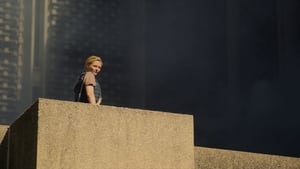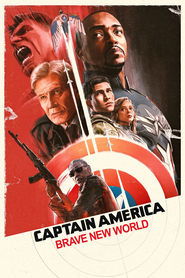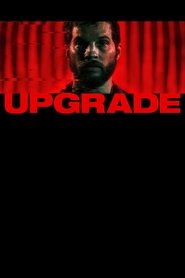America’s political landscape has always been contentious, but it was Donald Trump’s entrance into the arena in 2015 that saw the vitriol between Democrats and Republicans reach what feels like an unfixable splintering. This gloomy outlook has become the backdrop to Alex Garland’s buzzy SXSW headliner, Civil War. The writer-turned-director transformed his impressive knack for penning creative sci-fi stories into a full-fledged filmmaking career as the visionary behind movies such as Ex-Machina, Annihilation, and Men. Yet, this time around, Garland sets his sights on a futuristic, war-torn America where city streets have become dangerous war zones. Tapping into this bleak, yet by no means unfathomable hypothetical scenario, Civil War is guaranteed to have audiences from all over the political spectrum talking.
The film opens with the American President (played by Parks and Rec’s Nick Offerman) declaring victory over the successionist Western Forces of California and Texas. However, war zone journalist Joel (Narcos’ Wagner Moura) and photographer Lee (Kirsten Dunst) sense a much different reality as they try to capture the realities of this war within United States. As rumors start to swirl of these opposing forces descending upon Washington D.C. to overthrow the President once and for all, Joel and Lee race to the nation’s capital along with fellow journalist Sammy (Dune: Part One’s Stephen McKinley Henderson) and the young aspiring photographer Jessie (Priscilla’s Cailee Spaeny). Yet, nothing can prepare them for the brutal realities that await all across their 800-mile journey to the White House.

Alex Garland’s foray into filmmaking began with a bang. 2014’s Ex-Machina was a taut, thought-provoking exploration of Artificial Intelligence, and one that helped bring A24 to the forefront of independent cinema. Unfortunately, though, it’s been a slight but steady decrease for Garland’s film catalog ever since. Annihilation proved to be another heady sci-fi that was less mainstream but still quite effective. His next film, Men, polarized audiences but still had a loyal fanbase. And as for Garland’s latest effort, Civil War, marks a new low for the filmmaker. It’s a hollow and superficial story that’s more about the harrowing experiences of war-zone journalists than anything else. For a movie titled “Civil War” and one that uses an irreversibly fractured Unites States as its backdrop, there’s a refusal to address what specifically caused this breaking point. In fact, Civil War intentionally shies away from political discord (outside of one brief but tense scene headlined by Jesse Plemons). This failure to tackle the film’s central, namesake thesis is a bit of a headscratcher and crushes the validity of Civil War altogether.
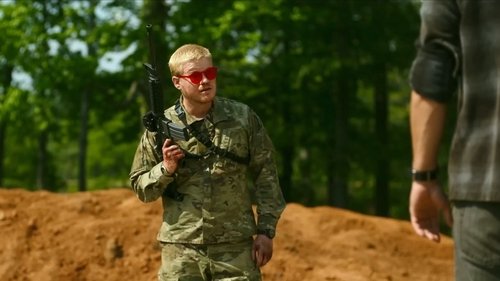
Despite delivering a viewing experience unlike anything suggested by the film’s marketing, Garland’s Civil War does an admirable job of illustrating the insane but invaluable professions of war-zone reporters and photographers. Witnessing these characters rush towards gunfire and continually put their lives on the line for the purpose of showing the world first-hand accounts regarding the atrocities of war is astonishing. However, despite this eye-opening realization, Garland’s script fails to bring depth to the film’s central characters. Kirsten Dunst and Cailee Spaeny do their best with what they’ve been given, but they haven’t been given much.
Outside a few sporadic moments of strength and offering a unique perspective of those obligated to capture the harsh reality of battle, Civil War stands as a bland and shallow money grab effort from the usually reliable A24 studios. Alex Garland is capable of better as both a writer and director, yet this time around he fails to deliver on what was advertised. Somewhere within the premise of Civil War resides a more opportune and fascinating story, but it’s one that’s nowhere to be found in this film.
-
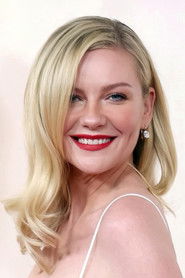 NameKirsten DunstCharacterLee
NameKirsten DunstCharacterLee -
 NameWagner MouraCharacterJoel
NameWagner MouraCharacterJoel -
 NameCailee SpaenyCharacterJessie
NameCailee SpaenyCharacterJessie -
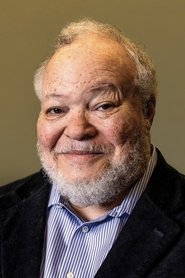 NameStephen McKinley HendersonCharacterSammy
NameStephen McKinley HendersonCharacterSammy -
 NameNelson LeeCharacterTony
NameNelson LeeCharacterTony -
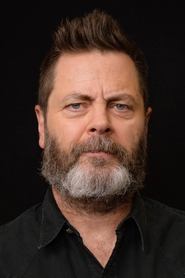 NameNick OffermanCharacterPresident
NameNick OffermanCharacterPresident -
 NameJefferson WhiteCharacterDave
NameJefferson WhiteCharacterDave -
 NameEvan LaiCharacterBohai
NameEvan LaiCharacterBohai -
 NameVince PisaniCharacterConcierge
NameVince PisaniCharacterConcierge -
 NameJustin James BoykinCharacterAmerican Soldier (Middle East)
NameJustin James BoykinCharacterAmerican Soldier (Middle East) -
 NameJess MatneyCharacterCheckpoint Soldier
NameJess MatneyCharacterCheckpoint Soldier -
 NameGreg HillCharacterPete
NameGreg HillCharacterPete -
 NameEdmund DonovanCharacterEddie
NameEdmund DonovanCharacterEddie -
 NameSonoya MizunoCharacterAnya
NameSonoya MizunoCharacterAnya -
 NameTim JamesCharacterHanging Captive
NameTim JamesCharacterHanging Captive -
 NameSimeon FreemanCharacterCommercial Soldier Mike
NameSimeon FreemanCharacterCommercial Soldier Mike -
 NameJames YaegashiCharacterCommercial Corporal
NameJames YaegashiCharacterCommercial Corporal -
 NameDean GrimesCharacterCommerical Soldier #1
NameDean GrimesCharacterCommerical Soldier #1 -
 NameAlexa MansourCharacterAid Worker Refugee Camp
NameAlexa MansourCharacterAid Worker Refugee Camp -
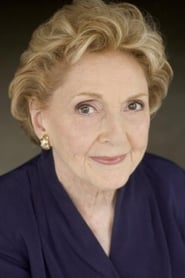 NameMartha B. KnightonCharacterElderly Woman
NameMartha B. KnightonCharacterElderly Woman -
 NameMelissa Saint-AmandCharacterShop Assistant
NameMelissa Saint-AmandCharacterShop Assistant -
 NameKarl GlusmanCharacterSpotter
NameKarl GlusmanCharacterSpotter -
 NameJin HaCharacterSniper
NameJin HaCharacterSniper -
 NameJojo T. GibbsCharacterWF White House Sergeant
NameJojo T. GibbsCharacterWF White House Sergeant -
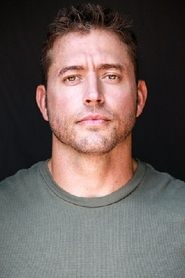 NameJared ShawCharacterWF White House Assaulter #1
NameJared ShawCharacterWF White House Assaulter #1 -
 NameJustin GarzaCharacterWF White House Assaulter #2
NameJustin GarzaCharacterWF White House Assaulter #2 -
 NameBrian PhilpotCharacterWF White House Assaulter #3
NameBrian PhilpotCharacterWF White House Assaulter #3 -
 NameTywaun TornesCharacterWF White House Assaulter #4
NameTywaun TornesCharacterWF White House Assaulter #4 -
 NameJuani FelizCharacterJoy Butler
NameJuani FelizCharacterJoy Butler -
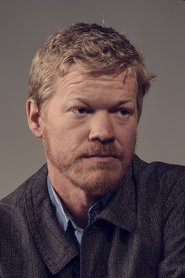 NameJesse PlemonsCharacterMilitia Soldier (uncredited)
NameJesse PlemonsCharacterMilitia Soldier (uncredited) -
 NameJeff BosleyCharacterSFC Brown (uncredited)
NameJeff BosleyCharacterSFC Brown (uncredited) -
 NameRyan Austin BryantCharacterWF Marine (uncredited)
NameRyan Austin BryantCharacterWF Marine (uncredited) -
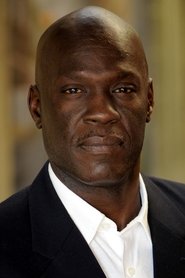 NameBrent Moorer GaskinsCharacterInjured Marine (uncredited)
NameBrent Moorer GaskinsCharacterInjured Marine (uncredited) -
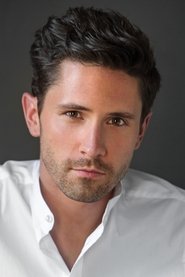 NameEvan HoltzmanCharacterSecret Service Agent (uncredited)
NameEvan HoltzmanCharacterSecret Service Agent (uncredited) -
 NameCora Maple LindellCharacterDying Refugee (uncredited)
NameCora Maple LindellCharacterDying Refugee (uncredited) -
 NameTemper LavigneCharacterRefugee (uncredited)
NameTemper LavigneCharacterRefugee (uncredited) -
 NameMiles JohnsonCharacterBrooklyn Protester (uncredited)
NameMiles JohnsonCharacterBrooklyn Protester (uncredited) -
 NameKevin KedgleyCharacterWestern Forces Marine / Flag Detail (uncredited)
NameKevin KedgleyCharacterWestern Forces Marine / Flag Detail (uncredited) -
 NameTimothy LaForceCharacterSoldier (uncredited)
NameTimothy LaForceCharacterSoldier (uncredited) -
 NameRandy S. LoveCharacterSoldier (uncredited)
NameRandy S. LoveCharacterSoldier (uncredited) -
 NameCody MarshallCharacterSoldier (uncredited)
NameCody MarshallCharacterSoldier (uncredited) -
 NameLePrix RobinsonCharacterFemale Army Soldier (uncredited)
NameLePrix RobinsonCharacterFemale Army Soldier (uncredited) -
 NameEasy Ian RadcliffeCharacterMarine (uncredited)
NameEasy Ian RadcliffeCharacterMarine (uncredited) -
 NameErnest 'Scooby' RogersCharacterRiot Police / Army Soldier (uncredited)
NameErnest 'Scooby' RogersCharacterRiot Police / Army Soldier (uncredited) -
 NameDaniel Patrick ShookCharacterGuard Marine (uncredited)
NameDaniel Patrick ShookCharacterGuard Marine (uncredited) -
 NameVinnie VaronCharacterUS Marine (uncredited)
NameVinnie VaronCharacterUS Marine (uncredited) -
 NameJaclyn WhiteCharacterWar Journalist (uncredited)
NameJaclyn WhiteCharacterWar Journalist (uncredited) -
 NameRobert TinsleyCharacterMarine (uncredited)
NameRobert TinsleyCharacterMarine (uncredited) -
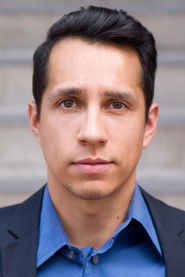 NameJoe Manuel Gallegos Jr.CharacterAir Steward (uncredited)
NameJoe Manuel Gallegos Jr.CharacterAir Steward (uncredited) -
 NameLauren Marie GordonCharacterMarine (uncredited)
NameLauren Marie GordonCharacterMarine (uncredited) -
 NameKevin HowellCharacterWestern Force Army Soldier (uncredited)
NameKevin HowellCharacterWestern Force Army Soldier (uncredited) -
 NameAnthony King-WestCharacterCamp Refugee (uncredited)
NameAnthony King-WestCharacterCamp Refugee (uncredited) -
 NameAshley LilligCharacterInjured Rioter (uncredited)
NameAshley LilligCharacterInjured Rioter (uncredited) -
 NameXavier MillsCharacterAmerican Medic (uncredited)
NameXavier MillsCharacterAmerican Medic (uncredited) -
 NameJuan SzilagyiCharacterMarine (uncredited)
NameJuan SzilagyiCharacterMarine (uncredited) -
 NameAdam RivetteCharacterReef 1 (uncredited)
NameAdam RivetteCharacterReef 1 (uncredited) -
 NamePeter NguyenCharacterMarine (uncredited)
NamePeter NguyenCharacterMarine (uncredited) -
 NameJesse PlemonsCharacterMilitant (uncredited)
NameJesse PlemonsCharacterMilitant (uncredited)
-
 NameAlex GarlandJobWriter
NameAlex GarlandJobWriter -
 NameAlex GarlandJobDirector
NameAlex GarlandJobDirector -
 NameGeoff BarrowJobOriginal Music Composer
NameGeoff BarrowJobOriginal Music Composer -
 NameBen SalisburyJobOriginal Music Composer
NameBen SalisburyJobOriginal Music Composer -
 NameRob HardyJobDirector of Photography
NameRob HardyJobDirector of Photography -
 NameJanelle BeaudryJobStunts
NameJanelle BeaudryJobStunts -
 NameJason VigdorJobArt Direction
NameJason VigdorJobArt Direction -
 NameJake RobertsJobEditor
NameJake RobertsJobEditor -
 NameMeghan KasperlikJobCostume Design
NameMeghan KasperlikJobCostume Design -
 NameCaty MaxeyJobProduction Design
NameCaty MaxeyJobProduction Design -
 NameLizbeth AyalaJobSet Decoration
NameLizbeth AyalaJobSet Decoration -
 NameMark DillonJobArt Direction
NameMark DillonJobArt Direction -
 NameJ.D. SchwalmJobSpecial Effects Supervisor
NameJ.D. SchwalmJobSpecial Effects Supervisor -
 NameCrystal BroedelJobHairstylist
NameCrystal BroedelJobHairstylist -
 NameLee Alan McConnellJobSpecial Effects Coordinator
NameLee Alan McConnellJobSpecial Effects Coordinator -
 NameAlex BreijakJobMakeup Artist
NameAlex BreijakJobMakeup Artist -
 NameAshley LevyJobMakeup Department Head
NameAshley LevyJobMakeup Department Head -
 NameAmy WoodJobHair Department Head
NameAmy WoodJobHair Department Head -
 NameCrystal HooksJobStunt Double
NameCrystal HooksJobStunt Double -
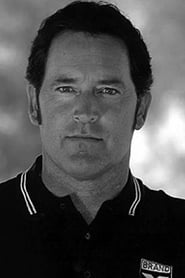 NameJeff 'JJ' DashnawJobStunt Coordinator
NameJeff 'JJ' DashnawJobStunt Coordinator -
 NameAdam RivetteJobStunts
NameAdam RivetteJobStunts -
 NameRemington SteeleJobStunts
NameRemington SteeleJobStunts -
 NameRyan StaatsJobStunts
NameRyan StaatsJobStunts -
 NameMike PrawitzJobPyrotechnician
NameMike PrawitzJobPyrotechnician -
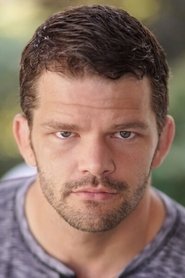 NameChristian BrunettiJobStunt Double
NameChristian BrunettiJobStunt Double -
 NameJanelle BeaudryJobStunt Double
NameJanelle BeaudryJobStunt Double -
 NameMichelle RoseJobVisual Effects Producer
NameMichelle RoseJobVisual Effects Producer -
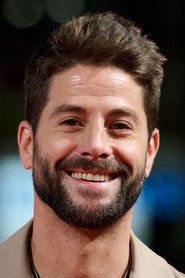 NameLuis FernándezJobStunt Double
NameLuis FernándezJobStunt Double -
 NameTyler GalpinJobStunt Double
NameTyler GalpinJobStunt Double -
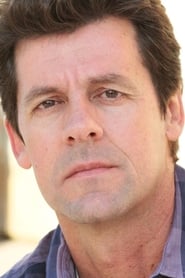 NameFelipe SavahgeJobStunts
NameFelipe SavahgeJobStunts -
 NameJeff GalpinJobStunt Double
NameJeff GalpinJobStunt Double -
 NameJohn SantiagoJobStunts
NameJohn SantiagoJobStunts -
 NameDalton RondellJobStunts
NameDalton RondellJobStunts -
 NameCoy BreauxJobLighting Technician
NameCoy BreauxJobLighting Technician -
 NameKelly R. BorisyJobDolly Grip
NameKelly R. BorisyJobDolly Grip -
 NameMurray CloseJobStill Photographer
NameMurray CloseJobStill Photographer -
 NameJoseph MasonJobLighting Technician
NameJoseph MasonJobLighting Technician -
 NameBenj GibicsarJobSet Costumer
NameBenj GibicsarJobSet Costumer -
 NameZach BeahanJobElectrician
NameZach BeahanJobElectrician -
 NameHugh BraseltonJob"B" Camera Operator
NameHugh BraseltonJob"B" Camera Operator -
 NameSam CoodyJobRigging Grip
NameSam CoodyJobRigging Grip -
 NameBruce LeefookJobLighting Technician
NameBruce LeefookJobLighting Technician -
 NameDehaven MooreJobLighting Technician
NameDehaven MooreJobLighting Technician -
 NameRick TurnerJobRigging Grip
NameRick TurnerJobRigging Grip -
 NameKaley BoernekeJobCasting Assistant
NameKaley BoernekeJobCasting Assistant -
 NameStacia P ClarkeJobSet Costumer
NameStacia P ClarkeJobSet Costumer -
 NameMichael CapeJobGrip
NameMichael CapeJobGrip -
 NameLogan RussellJobGrip
NameLogan RussellJobGrip -
 NameStoy FulcherJobRigging Grip
NameStoy FulcherJobRigging Grip -
 NameEmily GoodJobCostumer
NameEmily GoodJobCostumer -
 NameJared B. LeeseJobTailor
NameJared B. LeeseJobTailor -
 NameChelyse AbramsJobDailies Operator
NameChelyse AbramsJobDailies Operator -
 NameJohnathan Wei DickinsonJobDigital Intermediate
NameJohnathan Wei DickinsonJobDigital Intermediate -
 NameSaffron WeaverJobAssistant Editor
NameSaffron WeaverJobAssistant Editor -
 NameMatthew HaskinsJobSecond Assistant "A" Camera
NameMatthew HaskinsJobSecond Assistant "A" Camera -
 NameTodd HeaterJobGaffer
NameTodd HeaterJobGaffer -
 NameTony MurimaJobRigging Grip
NameTony MurimaJobRigging Grip -
 NameMadison DivergilioJobCostumer
NameMadison DivergilioJobCostumer -
 NameKassia DombroskiJobCostume Coordinator
NameKassia DombroskiJobCostume Coordinator -
 NameBrian DennisJobRigging Gaffer
NameBrian DennisJobRigging Gaffer -
 NameDaniel GuadalupeJobFirst Assistant "B" Camera
NameDaniel GuadalupeJobFirst Assistant "B" Camera -
 NameYasmeen GriffinJobExtras Casting
NameYasmeen GriffinJobExtras Casting -
 NameHeidi JacoboJobDailies Operator
NameHeidi JacoboJobDailies Operator -
 NameBreona JonesJobCamera Technician
NameBreona JonesJobCamera Technician -
 NameLaura MengoniJobExtras Casting
NameLaura MengoniJobExtras Casting -
 NameAlex OlinoJobLocation Assistant
NameAlex OlinoJobLocation Assistant -
 NameNoah RoddenJobDailies Operator
NameNoah RoddenJobDailies Operator -
 NameRichard ArnoldJobBest Boy Grip
NameRichard ArnoldJobBest Boy Grip -
 NameWilliam Justin AycockJobLighting Technician
NameWilliam Justin AycockJobLighting Technician -
 NameMike FloresJobDolly Grip
NameMike FloresJobDolly Grip -
 NameNicole HigginsJobRigging Grip
NameNicole HigginsJobRigging Grip -
 NameMegan FudgeJobSet Costumer
NameMegan FudgeJobSet Costumer -
 NameLindsay HeneferJobLocation Assistant
NameLindsay HeneferJobLocation Assistant -
 NameJames Billy Hill IIIJobAssistant Location Manager
NameJames Billy Hill IIIJobAssistant Location Manager -
 NameAdam MeadowsJobVideo Assist Operator
NameAdam MeadowsJobVideo Assist Operator -
 NameDon SteinbergJobFocus Puller
NameDon SteinbergJobFocus Puller -
 NameAsa ShoulJobDigital Intermediate Colorist
NameAsa ShoulJobDigital Intermediate Colorist -
 NameCherie NewJobAssistant Location Manager
NameCherie NewJobAssistant Location Manager -
 NameFred DufferJobVideo Assist Operator
NameFred DufferJobVideo Assist Operator -
 NameBrianne FreemanJobCostumer
NameBrianne FreemanJobCostumer -
 NameAustin ArmstrongJobLocation Production Assistant
NameAustin ArmstrongJobLocation Production Assistant -
 NameAndrew DevlinJobLocation Scout
NameAndrew DevlinJobLocation Scout -
 NameChris DuMontJob"C" Camera Operator
NameChris DuMontJob"C" Camera Operator -
 NameMat IrbyJobAdditional Grip
NameMat IrbyJobAdditional Grip -
 NameBeaux PetitJobElectrician
NameBeaux PetitJobElectrician -
 NameTerrance SmallsJobElectrician
NameTerrance SmallsJobElectrician -
 NameHana LoweJobAssistant Location Manager
NameHana LoweJobAssistant Location Manager -
 NameKellie MorrisonJobLocation Manager
NameKellie MorrisonJobLocation Manager -
 NameMelissa MortensenJobAssistant Location Manager
NameMelissa MortensenJobAssistant Location Manager -
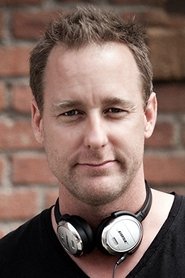 NameDylan GossJobAerial Director of Photography
NameDylan GossJobAerial Director of Photography -
 NameJason LancourJobFirst Assistant Camera
NameJason LancourJobFirst Assistant Camera -
 NameMackie RobertsJobKey Grip
NameMackie RobertsJobKey Grip -
 NameJeff WallaceJobAssistant Chief Lighting Technician
NameJeff WallaceJobAssistant Chief Lighting Technician -
 NameGareth ParryJobOnline Editor
NameGareth ParryJobOnline Editor -
 NameLowell LambertJobAssistant Location Manager
NameLowell LambertJobAssistant Location Manager -
 NameJeremy HerefordJobRigging Grip
NameJeremy HerefordJobRigging Grip -
 NameStephen LambJobGrip
NameStephen LambJobGrip -
 NameGrayson GuldenschuhJobSecond Assistant "C" Camera
NameGrayson GuldenschuhJobSecond Assistant "C" Camera -
 NameLouie NorthernJobDrone Pilot
NameLouie NorthernJobDrone Pilot -
 NameTori RolosonJobGrip
NameTori RolosonJobGrip -
 NameJennifer HryniwJobAssistant Costume Designer
NameJennifer HryniwJobAssistant Costume Designer -
 NameJens BaylisJobFirst Assistant Editor
NameJens BaylisJobFirst Assistant Editor -
 NameAlan PrittJobDigital Intermediate Producer
NameAlan PrittJobDigital Intermediate Producer -
 NameSam SheltonJobAssistant Editor
NameSam SheltonJobAssistant Editor -
 NameJeff D. WilliamsJobAssistant Location Manager
NameJeff D. WilliamsJobAssistant Location Manager -
 NameAngeline SantivasciJobAssistant Location Manager
NameAngeline SantivasciJobAssistant Location Manager -
 NameMichael WoodruffJobAssistant Location Manager
NameMichael WoodruffJobAssistant Location Manager -
 NameAmber HarleyJobScript Supervisor
NameAmber HarleyJobScript Supervisor -
 NameDaniel SortetJobLocation Coordinator
NameDaniel SortetJobLocation Coordinator -
 NameSimon AstallJobMusic Supervisor
NameSimon AstallJobMusic Supervisor -
 NameClare St. JohnJobPost Production Consulting
NameClare St. JohnJobPost Production Consulting -
 NameRachel ParkJobMusic Editor
NameRachel ParkJobMusic Editor -
 NameCarla WallaceJobMakeup Artist
NameCarla WallaceJobMakeup Artist -
 NameSuzanne BonannoJobScenic Artist
NameSuzanne BonannoJobScenic Artist -
 NameDeena AdairJobKey Hair Stylist
NameDeena AdairJobKey Hair Stylist -
 NameMadelyn KahnJobArt Department Assistant
NameMadelyn KahnJobArt Department Assistant -
 NameBrynna NorvellJobAssistant Art Director
NameBrynna NorvellJobAssistant Art Director -
 NameBen BarkerJobSupervising Sound Editor
NameBen BarkerJobSupervising Sound Editor -
 NameAlex-Michael PettyJobMakeup Artist
NameAlex-Michael PettyJobMakeup Artist -
 NameBrett FahleJobSet Dresser
NameBrett FahleJobSet Dresser -
 NameCarson HicksJobProduction Assistant
NameCarson HicksJobProduction Assistant -
 NameEric HeffronJobFirst Assistant Director
NameEric HeffronJobFirst Assistant Director -
 NamePike KanjanampaJobArt Department Coordinator
NamePike KanjanampaJobArt Department Coordinator -
 NameAlexander LindeJobAssistant Art Director
NameAlexander LindeJobAssistant Art Director -
 NameZack TimmsJobSet Dresser
NameZack TimmsJobSet Dresser -
 NameHuelon F. Thrift Jr.JobTransportation Coordinator
NameHuelon F. Thrift Jr.JobTransportation Coordinator -
 NameTarn HarperJobPost Production Accountant
NameTarn HarperJobPost Production Accountant -
 NameJenny KissoonJobAssistant Production Coordinator
NameJenny KissoonJobAssistant Production Coordinator -
 NameEmily MinnickJobSet Dresser
NameEmily MinnickJobSet Dresser -
 NameGrant LaffertyJobProduction Assistant
NameGrant LaffertyJobProduction Assistant -
 NameChayse BanksJobProduction Assistant
NameChayse BanksJobProduction Assistant -
 NameTyrone LeeJobArmorer
NameTyrone LeeJobArmorer -
 NameNelson HagoodJobLeadman
NameNelson HagoodJobLeadman -
 NameDan RikerJobArmorer
NameDan RikerJobArmorer -
 NameJohn SandersJobProperty Master
NameJohn SandersJobProperty Master -
 NameKelly HarrellJobProps
NameKelly HarrellJobProps -
 NameCharles Skip McCoyJobDriver
NameCharles Skip McCoyJobDriver -
 NameNatasha NegronJobMakeup Artist
NameNatasha NegronJobMakeup Artist -
 NameChristopher FerrisJobConstruction Coordinator
NameChristopher FerrisJobConstruction Coordinator -
 NameGregory SantoroJobSecond Second Assistant Director
NameGregory SantoroJobSecond Second Assistant Director -
 NameJim MagdalenoJobStoryboard Artist
NameJim MagdalenoJobStoryboard Artist -
 NameWillow WatsonJobSet Designer
NameWillow WatsonJobSet Designer -
 NameJennie BreckenridgeJobADR Recordist
NameJennie BreckenridgeJobADR Recordist -
 NameGillian DoddersJobSupervising Dialogue Editor
NameGillian DoddersJobSupervising Dialogue Editor -
 NameJustin HoltJobProduction Assistant
NameJustin HoltJobProduction Assistant -
 NameChico L. JonesJobDriver
NameChico L. JonesJobDriver -
 NameSamantha KrupicaJobProduction Assistant
NameSamantha KrupicaJobProduction Assistant -
 NameJakaila LangstonJobCasting Assistant
NameJakaila LangstonJobCasting Assistant -
 NameHannah BrunnerJobProduction Assistant
NameHannah BrunnerJobProduction Assistant -
 NameKenneth YuJobUnit Production Manager
NameKenneth YuJobUnit Production Manager -
 NameCraig ComstockJobSecond Assistant Director
NameCraig ComstockJobSecond Assistant Director -
 NameDan BrancifortiJobSet Dresser
NameDan BrancifortiJobSet Dresser -
 NameBrian Calvin SmithJobOn Set Dresser
NameBrian Calvin SmithJobOn Set Dresser -
 NameJosh MeloJobProduction Secretary
NameJosh MeloJobProduction Secretary -
 NameMargaret MooreJobProduction Assistant
NameMargaret MooreJobProduction Assistant -
 NameTravis MeguireJobProduction Assistant
NameTravis MeguireJobProduction Assistant -
 NameMarjorie RudickJobProduction Coordinator
NameMarjorie RudickJobProduction Coordinator -
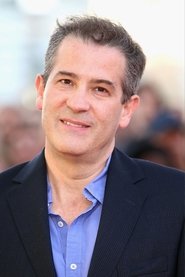 NameAllon ReichJobProducer
NameAllon ReichJobProducer -
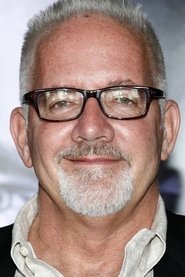 NameGregory GoodmanJobProducer
NameGregory GoodmanJobProducer -
 NameAndrew MacdonaldJobProducer
NameAndrew MacdonaldJobProducer -
 NameMatt CurtisJobTitle Designer
NameMatt CurtisJobTitle Designer -
 NameRay MendozaJobMilitary Consultant
NameRay MendozaJobMilitary Consultant -
 NameTimo ArgillanderJobExecutive Producer
NameTimo ArgillanderJobExecutive Producer -
 NameElisa AlvaresJobExecutive Producer
NameElisa AlvaresJobExecutive Producer -
 NameAnthony LoweJobVFX Artist
NameAnthony LoweJobVFX Artist -
 NameFraser MurdochJobVFX Artist
NameFraser MurdochJobVFX Artist -
 NameFrederick Mac BrowneJobSpecial Effects Technician
NameFrederick Mac BrowneJobSpecial Effects Technician -
 NameFrancine MaislerJobCasting
NameFrancine MaislerJobCasting -
 NameJeremy ZamoraJobSpecial Effects Technician
NameJeremy ZamoraJobSpecial Effects Technician -
 NameLee BarracloughJobVFX Artist
NameLee BarracloughJobVFX Artist -
 NameDavid SimpsonJobVisual Effects Supervisor
NameDavid SimpsonJobVisual Effects Supervisor -
 NameArtem SmirnovJobVFX Artist
NameArtem SmirnovJobVFX Artist -
 NameLandon K. SmithJobSpecial Effects Technician
NameLandon K. SmithJobSpecial Effects Technician -
 NameAlex RabbittJobVFX Artist
NameAlex RabbittJobVFX Artist -
 NameAustin AplinJobVisual Effects Producer
NameAustin AplinJobVisual Effects Producer -
 NameRay MendozaJobTechnical Advisor
NameRay MendozaJobTechnical Advisor -
 NameLinda KesslerJobStunts
NameLinda KesslerJobStunts -
 NameT. Ryan MooneyJobStunts
NameT. Ryan MooneyJobStunts -
 NameBrandon BeckmanJobStunts
NameBrandon BeckmanJobStunts -
 NameBranden ArnoldJobStunts
NameBranden ArnoldJobStunts -
 NameChris RomrellJobStunts
NameChris RomrellJobStunts -
 NameGianni Biasetti Jr.JobStunts
NameGianni Biasetti Jr.JobStunts -
 NameDylan HiceJobStunts
NameDylan HiceJobStunts -
 NameSean Paul BraudJobStunts
NameSean Paul BraudJobStunts -
 NameJeff GalpinJobStunts
NameJeff GalpinJobStunts -
 NameJustin HallJobStunts
NameJustin HallJobStunts -
 NameRandy James BeckmanJobStunts
NameRandy James BeckmanJobStunts -
 NameJennie SheaJobADR Recordist
NameJennie SheaJobADR Recordist -
 NameAlex MartiniJobAdditional Second Assistant Director
NameAlex MartiniJobAdditional Second Assistant Director -
 NameRebecca HeathcoteJobFoley Artist
NameRebecca HeathcoteJobFoley Artist -
 NameRobert MaloneJobSound Effects Editor
NameRobert MaloneJobSound Effects Editor -
 NameGlenn FreemantleJobSound Designer
NameGlenn FreemantleJobSound Designer -
 NameGlen GathardJobFoley Mixer
NameGlen GathardJobFoley Mixer -
 NameIan MorganJobDialogue Editor
NameIan MorganJobDialogue Editor -
 NameGlenn FreemantleJobSupervising Sound Editor
NameGlenn FreemantleJobSupervising Sound Editor -
 NameStephanie LoganJobCostume Supervisor
NameStephanie LoganJobCostume Supervisor -
 NameChris NavarroJobADR Mixer
NameChris NavarroJobADR Mixer -
 NameNaomi GrahamJobDialogue Editor
NameNaomi GrahamJobDialogue Editor -
 NameDanny FreemantleJobSound Effects Editor
NameDanny FreemantleJobSound Effects Editor -
 NameZoe FreedJobFoley Artist
NameZoe FreedJobFoley Artist -
 NameRobby BrownJobFoley Editor
NameRobby BrownJobFoley Editor -
 NameNick FreemantleJobSound Effects Editor
NameNick FreemantleJobSound Effects Editor -
 NameDayo JamesJobSound Effects Editor
NameDayo JamesJobSound Effects Editor -
 NameCorey DecklerJobExecutive In Charge Of Production
NameCorey DecklerJobExecutive In Charge Of Production -
 NameDarby AbrahamJobSet Decorating Coordinator
NameDarby AbrahamJobSet Decorating Coordinator -
 NameDarla WigleyJobMakeup Artist
NameDarla WigleyJobMakeup Artist -
 NameKenneth YuJobCo-Producer
NameKenneth YuJobCo-Producer -
 NameValoria McClelandJobHairstylist
NameValoria McClelandJobHairstylist -
 NameNicolas BachJobAssistant Property Master
NameNicolas BachJobAssistant Property Master -
 NameEric AnthonyJobProps
NameEric AnthonyJobProps -
 NameTaylor KirbyJobSet Dresser
NameTaylor KirbyJobSet Dresser -
 NameIsa YousufzaiJobSound Mix Technician
NameIsa YousufzaiJobSound Mix Technician -
 NameBridgit CriderJobKey Makeup Artist
NameBridgit CriderJobKey Makeup Artist -
 NameMark TimmsJobSound Re-Recording Mixer
NameMark TimmsJobSound Re-Recording Mixer -
 NameRodrigo ArmendarizJobVisual Effects Compositor
NameRodrigo ArmendarizJobVisual Effects Compositor -
 NameEmilie O'ConnorJobDialogue Editor
NameEmilie O'ConnorJobDialogue Editor -
 NameBrian ShevelaJobSpecial Effects
NameBrian ShevelaJobSpecial Effects -
 NameEric HeffronJobCo-Producer
NameEric HeffronJobCo-Producer -
 NameMatthew CzarnowskyJobArmorer
NameMatthew CzarnowskyJobArmorer -
 NamePriya MaharajJobMakeup Artist
NamePriya MaharajJobMakeup Artist -
 NameAL PayneJobHairstylist
NameAL PayneJobHairstylist -
 NameHoward BargroffJobSound Re-Recording Mixer
NameHoward BargroffJobSound Re-Recording Mixer -
 NameMary H. EllisJobSound Mixer
NameMary H. EllisJobSound Mixer -
 NameMehrnaz MohabatiJobADR Mixer
NameMehrnaz MohabatiJobADR Mixer -
 NameEric WhiteJobOn Set Dresser
NameEric WhiteJobOn Set Dresser -
 NameJoanne SmithJobAssociate Producer
NameJoanne SmithJobAssociate Producer -
 NameEsta PateJobSet Painter
NameEsta PateJobSet Painter -
 NameGillian DoddersJobSupervising ADR Editor
NameGillian DoddersJobSupervising ADR Editor -
 NameJoey MartinJobCharge Scenic Artist
NameJoey MartinJobCharge Scenic Artist -
 NameAndrew GaidanovJobSound Mix Technician
NameAndrew GaidanovJobSound Mix Technician -
 NamePaul AshallJobAnimation
NamePaul AshallJobAnimation -
 NameJeffrey RoyJobADR Mixer
NameJeffrey RoyJobADR Mixer -
 NameDevita WalkerJobAssistant Art Director
NameDevita WalkerJobAssistant Art Director -
 NameArthur TurnerJobDialogue Editor
NameArthur TurnerJobDialogue Editor -
 NameRichard HogueJobPyrotechnician
NameRichard HogueJobPyrotechnician -
 NameKyle A. WassermanJobPyrotechnician
NameKyle A. WassermanJobPyrotechnician -
 NameMatt HalladayJobProps
NameMatt HalladayJobProps -
 NameFergus PatemanJobSound Mix Technician
NameFergus PatemanJobSound Mix Technician -
 NameAdam ScrivenerJobSound Re-Recording Mixer
NameAdam ScrivenerJobSound Re-Recording Mixer -
 NameIsabella Abrams-HumphriesJobVisual Effects Producer
NameIsabella Abrams-HumphriesJobVisual Effects Producer -
 NameJonathan ZuaznabarJobProps
NameJonathan ZuaznabarJobProps -
 NameJasper ThornJobSound Mix Technician
NameJasper ThornJobSound Mix Technician -
 NameDamián BabbaroJobDigital Compositor
NameDamián BabbaroJobDigital Compositor -
 NameEdward FerrysienandaJobEffects Supervisor
NameEdward FerrysienandaJobEffects Supervisor -
 NameMilan GrundzaJobVisual Effects Compositor
NameMilan GrundzaJobVisual Effects Compositor -
 NamePatrick Michael BurkeJobCompositing Lead
NamePatrick Michael BurkeJobCompositing Lead -
 NameBishoy KhalifaJobVisual Effects Technical Director
NameBishoy KhalifaJobVisual Effects Technical Director -
 NameDan PryorJobDigital Compositor
NameDan PryorJobDigital Compositor -
 NameEmmanuel BrassardJobDigital Compositor
NameEmmanuel BrassardJobDigital Compositor -
 NameMarcus DupratJobVisual Effects Technical Director
NameMarcus DupratJobVisual Effects Technical Director -
 NameLucia GarofaloJobDigital Compositor
NameLucia GarofaloJobDigital Compositor -
 NameAdy HoltJobCreature Effects Technical Director
NameAdy HoltJobCreature Effects Technical Director -
 NameHarry KeaneJobVisual Effects Coordinator
NameHarry KeaneJobVisual Effects Coordinator -
 NameVishal ChauhanJobDigital Compositor
NameVishal ChauhanJobDigital Compositor -
 NameKorinne CammaranoJobDigital Compositor
NameKorinne CammaranoJobDigital Compositor -
 NameAbhijitsinh GohilJobVisual Effects Producer
NameAbhijitsinh GohilJobVisual Effects Producer -
 NameKevin GraveyJobVFX Artist
NameKevin GraveyJobVFX Artist -
 NameAlexander BucknellJobVisual Effects Technical Director
NameAlexander BucknellJobVisual Effects Technical Director -
 NameMohamed KamelJobDigital Compositor
NameMohamed KamelJobDigital Compositor -
 NameChris BerryJobDigital Compositor
NameChris BerryJobDigital Compositor -
 NameIva AtanasovaJobVisual Effects Coordinator
NameIva AtanasovaJobVisual Effects Coordinator -
 NameLee BaskervilleJobVFX Artist
NameLee BaskervilleJobVFX Artist -
 NameRamia GattupelliJobMatte Painter
NameRamia GattupelliJobMatte Painter -
 NameMason HilligennJobVFX Artist
NameMason HilligennJobVFX Artist -
 NameCarlos Flórez RegalizaJobDigital Compositor
NameCarlos Flórez RegalizaJobDigital Compositor -
 NameChristopher DaviesJobAnimation
NameChristopher DaviesJobAnimation -
 NameDiego BittencourtJobVisual Effects Compositor
NameDiego BittencourtJobVisual Effects Compositor -
 NameJoan AzpeitiaJobDigital Compositor
NameJoan AzpeitiaJobDigital Compositor -
 NameJosh BallingJobVFX Artist
NameJosh BallingJobVFX Artist -
 NameIzzy KingJobVisual Effects Assistant Editor
NameIzzy KingJobVisual Effects Assistant Editor -
 NameCaoimhe McEnteeJobVFX Artist
NameCaoimhe McEnteeJobVFX Artist -
 NameDavid MirJobDigital Compositor
NameDavid MirJobDigital Compositor -
 NameAddison PetrieJobVisual Effects Compositor
NameAddison PetrieJobVisual Effects Compositor -
 NameMax SolomonJobAnimation Supervisor
NameMax SolomonJobAnimation Supervisor -
 NameRares VeteleanuJobVFX Editor
NameRares VeteleanuJobVFX Editor -
 NameOliver LangJobVFX Artist
NameOliver LangJobVFX Artist -
 NameStacy ManganJobDigital Compositor
NameStacy ManganJobDigital Compositor -
 NameCiaran O'NeachtainJobDigital Compositor
NameCiaran O'NeachtainJobDigital Compositor -
 NameRob RankinJobVisual Effects Compositor
NameRob RankinJobVisual Effects Compositor -
 NameWilliam G. WrightJobVisual Effects Compositor
NameWilliam G. WrightJobVisual Effects Compositor -
 NameJohn OvusonJobDigital Compositor
NameJohn OvusonJobDigital Compositor -
 NameSian Rhys MorganJobVisual Effects Coordinator
NameSian Rhys MorganJobVisual Effects Coordinator -
 NameCaspar VinallJobRotoscoping Artist
NameCaspar VinallJobRotoscoping Artist -
 NameKatherine O'LoingsighJobRotoscoping Artist
NameKatherine O'LoingsighJobRotoscoping Artist -
 NameAndrás SzőcsJobDigital Compositor
NameAndrás SzőcsJobDigital Compositor -
 NameEd PlantJobVisual Effects Compositor
NameEd PlantJobVisual Effects Compositor -
 NameCody StoofJobVFX Artist
NameCody StoofJobVFX Artist -
 NameSteven MatesJobVFX Editor
NameSteven MatesJobVFX Editor -
 NameMarco NellaJobDigital Compositor
NameMarco NellaJobDigital Compositor -
 NameAlessio SeminerioJobVFX Artist
NameAlessio SeminerioJobVFX Artist -
 NameLy-Anne ThijsJobVFX Lighting Artist
NameLy-Anne ThijsJobVFX Lighting Artist -
 NameSamuel SwinnertonJobMatchmove Supervisor
NameSamuel SwinnertonJobMatchmove Supervisor -
 NameEugenio TroianiJobVFX Lighting Artist
NameEugenio TroianiJobVFX Lighting Artist -
 NameSara TomarchioJobDigital Compositor
NameSara TomarchioJobDigital Compositor -
 NameJai KrishnaswamyJobVisual Effects Compositor
NameJai KrishnaswamyJobVisual Effects Compositor -
 NameSam OsborneJobCompositing Lead
NameSam OsborneJobCompositing Lead -
 NameDerek AlfonsoJobStunts
NameDerek AlfonsoJobStunts -
 NameDustin NelsonJobStunts
NameDustin NelsonJobStunts -
 NameLin OedingJobStunts
NameLin OedingJobStunts -
 NameSom AidooJobStunts
NameSom AidooJobStunts -
 NameChad BowmanJobStunts
NameChad BowmanJobStunts -
 NameJames D. DeverJobStunts
NameJames D. DeverJobStunts -
 NameDarnell JordanJobStunts
NameDarnell JordanJobStunts -
 NameHorace Knight Jr.JobStunt Double
NameHorace Knight Jr.JobStunt Double -
 NameDominique Elijah SmithJobStunts
NameDominique Elijah SmithJobStunts -
 NameJeff BosleyJobStunts
NameJeff BosleyJobStunts -
 NamePhillip DangJobStunts
NamePhillip DangJobStunts -
 NameDonny CarringtonJobStunts
NameDonny CarringtonJobStunts -
 NameTim JamesJobStunts
NameTim JamesJobStunts -
 NamePreston SchragJobStunt Double
NamePreston SchragJobStunt Double -
 NameGarret DaltonJobStunts
NameGarret DaltonJobStunts -
 NameEvan HoltzmanJobStunts
NameEvan HoltzmanJobStunts -
 NameDamita Jane HowardJobStunts
NameDamita Jane HowardJobStunts -
 NameJake DashnawJobStunts
NameJake DashnawJobStunts -
 NameKara PetersenJobStunt Double
NameKara PetersenJobStunt Double -
 NameAntjuan RhamesJobStunts
NameAntjuan RhamesJobStunts -
 NameJames RyanJobStunt Coordinator
NameJames RyanJobStunt Coordinator -
 NameC.J. BrownJobStunts
NameC.J. BrownJobStunts -
 NameKent De MondJobStunts
NameKent De MondJobStunts -
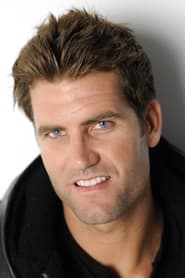 NameJeremy FitzgeraldJobStunts
NameJeremy FitzgeraldJobStunts -
 NameJomahl GildersleveJobStunts
NameJomahl GildersleveJobStunts -
 NameKawui JoaJobStunts
NameKawui JoaJobStunts -
 NameNicolas BoscJobStunts
NameNicolas BoscJobStunts -
 NameJames ClayJobStunts
NameJames ClayJobStunts -
 NameChris ClarkJobStunts
NameChris ClarkJobStunts -
 NameRabon HutchersonJobStunts
NameRabon HutchersonJobStunts -
 NameJohnny IvesJobStunts
NameJohnny IvesJobStunts -
 NameJohn AtnipJobStunts
NameJohn AtnipJobStunts -
 NameNiko DalmanJobStunts
NameNiko DalmanJobStunts -
 NamePhilip DidoJobStunts
NamePhilip DidoJobStunts -
 NameRegis HarringtonJobStunts
NameRegis HarringtonJobStunts -
 NameFredric JeanJobStunts
NameFredric JeanJobStunts -
 NameAaron MatthewsJobStunts
NameAaron MatthewsJobStunts -
 NameJoseph GambelJobStunts
NameJoseph GambelJobStunts -
 NameAlexander Hashioka OatfieldJobStunts
NameAlexander Hashioka OatfieldJobStunts -
 NameWilliam HutsonJobStunts
NameWilliam HutsonJobStunts -
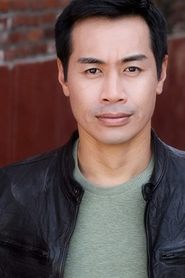 NameSamuel LeJobStunts
NameSamuel LeJobStunts -
 NameRuben MaldonadoJobStunts
NameRuben MaldonadoJobStunts -
 NameStacey CarinoJobStunts
NameStacey CarinoJobStunts -
 NameAntwain JonesJobStunts
NameAntwain JonesJobStunts -
 NameRenford LigonJobStunts
NameRenford LigonJobStunts -
 NameAby MartinJobStunts
NameAby MartinJobStunts -
 NameAndy MartinJobStunts
NameAndy MartinJobStunts -
 NameGary V. MocalisJobStunts
NameGary V. MocalisJobStunts -
 NamePaul ChappellJobStunt Driver
NamePaul ChappellJobStunt Driver -
 NameDean GrimesJobUtility Stunts
NameDean GrimesJobUtility Stunts -
 NameDevin Q. StreeterJobStunts
NameDevin Q. StreeterJobStunts -
 NameBobby TalbertJobStunts
NameBobby TalbertJobStunts -
 NameJustin WebbJobStunts
NameJustin WebbJobStunts -
 NameJosh RivenbarkJobGrip
NameJosh RivenbarkJobGrip -
 NameTony VoJobStunts
NameTony VoJobStunts -
 NameWilliam Justin AycockJobElectrician
NameWilliam Justin AycockJobElectrician -
 NameMichael OrtizJobStunts
NameMichael OrtizJobStunts -
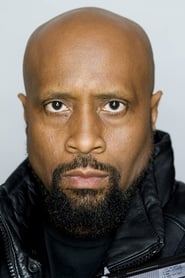 NameTodd Rogers TerryJobStunts
NameTodd Rogers TerryJobStunts -
 NameAnna Mercedes MendezJobStunts
NameAnna Mercedes MendezJobStunts -
 NameBob PelletierJobStunts
NameBob PelletierJobStunts -
 NameAshley Rae RiddickJobStunt Double
NameAshley Rae RiddickJobStunt Double -
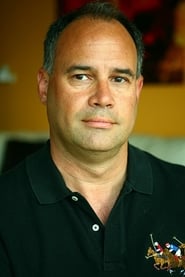 NameRichard TavernaroJobStunt Driver
NameRichard TavernaroJobStunt Driver -
 NameJared CorumJobStunts
NameJared CorumJobStunts -
 NameJohn SladeJobTechno Crane Operator
NameJohn SladeJobTechno Crane Operator -
 NamePreston ShuttlesworthJobStunts
NamePreston ShuttlesworthJobStunts -
 NameBrian PhilpotJobStunts
NameBrian PhilpotJobStunts -
 NameAlex MegleiJobStunts
NameAlex MegleiJobStunts -
 NamePatrick MooreJobStunts
NamePatrick MooreJobStunts -
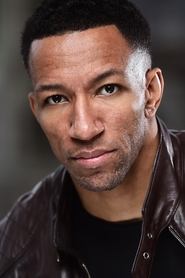 NameVictor PlajasJobStunts
NameVictor PlajasJobStunts -
 NameWesley ScottJobStunt Coordinator
NameWesley ScottJobStunt Coordinator -
 NameCody ShipmanJobStunts
NameCody ShipmanJobStunts -
 NameDavid WangJobStunts
NameDavid WangJobStunts -
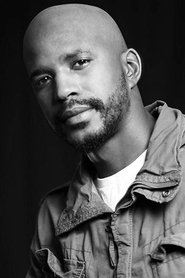 NameTaraja RamsessJobStunts
NameTaraja RamsessJobStunts -
 NameErnest 'Scooby' RogersJobStunts
NameErnest 'Scooby' RogersJobStunts -
 NameJohn PohmisanoJobStunts
NameJohn PohmisanoJobStunts -
 NameWyatt WernethJobStunts
NameWyatt WernethJobStunts -
 NameMichelle JangJobLighting Programmer
NameMichelle JangJobLighting Programmer -
 NameJon MyersJobDrone Pilot
NameJon MyersJobDrone Pilot -
 NameDavid J. ThompsonJob"A" Camera Operator
NameDavid J. ThompsonJob"A" Camera Operator -
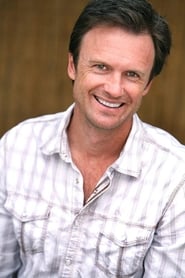 NameRick MarcusJobStunts
NameRick MarcusJobStunts -
 NameSteven ShelbyJobStunts
NameSteven ShelbyJobStunts -
 NameMatt ThompsonJobStunts
NameMatt ThompsonJobStunts -
 NameDother SykesJobStunts
NameDother SykesJobStunts -
 NameSean M. SullivanJobStunts
NameSean M. SullivanJobStunts -
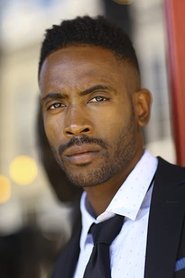 NameStanley White Jr.JobStunts
NameStanley White Jr.JobStunts -
 NameJessica WilliamsJobStunts
NameJessica WilliamsJobStunts -
 NameDana WoodsJobStunts
NameDana WoodsJobStunts -
 NameAlberto GenkJobAnimation
NameAlberto GenkJobAnimation -
 NameHeather TaylorJobExtras Casting Coordinator
NameHeather TaylorJobExtras Casting Coordinator -
 NameDale AnchorJobPost Production Coordinator
NameDale AnchorJobPost Production Coordinator -
 NameMeagan LewisJobLocation Casting
NameMeagan LewisJobLocation Casting -
 NameRicardo Richard AlvarezJobCostumer
NameRicardo Richard AlvarezJobCostumer -
 NameNazanin Yaghoobi RafiJobAnimation
NameNazanin Yaghoobi RafiJobAnimation -
 NameJulianne WhiteheadJobExtras Casting
NameJulianne WhiteheadJobExtras Casting -
 NameBailey JursikJobSet Costumer
NameBailey JursikJobSet Costumer -
 NameSamantha RockwellJobCostumer
NameSamantha RockwellJobCostumer -
 NameTroy DavidJobAger/Dyer
NameTroy DavidJobAger/Dyer -
 NameTiago DinisJobAnimation
NameTiago DinisJobAnimation -
 NameMaiya DanielsJobSet Costumer
NameMaiya DanielsJobSet Costumer -
 NameAlyssa MilesJobAger/Dyer
NameAlyssa MilesJobAger/Dyer -
 NameKevin HowellJobStand In
NameKevin HowellJobStand In -
 NameBrandon WhorleyJobAnimal Wrangler
NameBrandon WhorleyJobAnimal Wrangler -
 NameElizabeth PurnellJobMusician
NameElizabeth PurnellJobMusician -
 NameRick RoeschJobPayroll Accountant
NameRick RoeschJobPayroll Accountant -
 NameAsa ShoulJobColorist
NameAsa ShoulJobColorist -
 NameJoseph RainesJobLocation Scout
NameJoseph RainesJobLocation Scout -
 NameCasey BarkhurstJobAssistant Production Coordinator
NameCasey BarkhurstJobAssistant Production Coordinator -
 NameSean SnookJobMusician
NameSean SnookJobMusician -
 NameJason BogardJobProduction Controller
NameJason BogardJobProduction Controller -
 NameJamison BryantJobDialect Coach
NameJamison BryantJobDialect Coach -
 NameLucy KolodynskaJobPost Production Supervisor
NameLucy KolodynskaJobPost Production Supervisor -
 NameRupert CoulsonJobScoring Mixer
NameRupert CoulsonJobScoring Mixer -
 NameBen SalisburyJobMusician
NameBen SalisburyJobMusician -
 NameMegan K. PerkinsJobSecond Assistant Accountant
NameMegan K. PerkinsJobSecond Assistant Accountant -
 NameRoss HughesJobMusician
NameRoss HughesJobMusician -
 NameMark BowenJobMusician
NameMark BowenJobMusician -
 NameDavid CollisJobPicture Car Coordinator
NameDavid CollisJobPicture Car Coordinator -
 NameSamuel coodyJobLighting Technician
NameSamuel coodyJobLighting Technician -
 NameAmber WakefieldJobCasting Associate
NameAmber WakefieldJobCasting Associate -
 NameRebecca CarfagnaJobLocation Casting
NameRebecca CarfagnaJobLocation Casting
-
Trailer
-
Trailer
-
Trailer
-
Clip
-
Clip
-
Teaser
-
Teaser
-
Teaser
-
Teaser
-
Teaser
-
Teaser
-
Featurette
-
Featurette
-
Featurette


